

Other releases:
A Sequence of Mistakes
(2024)
The World Without
(2017)





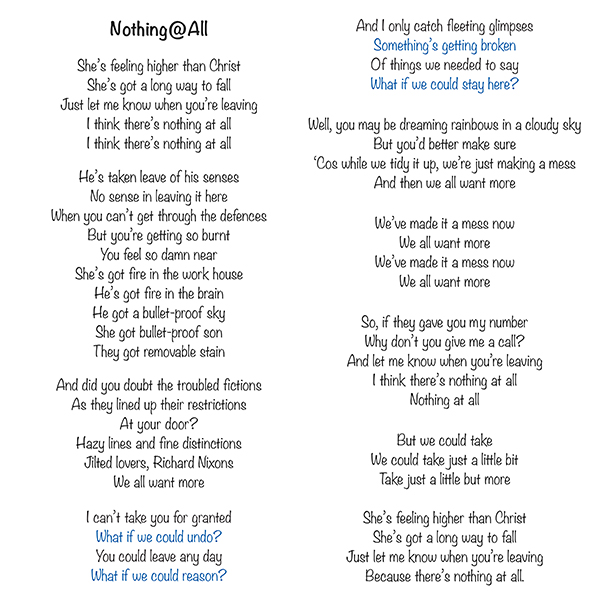
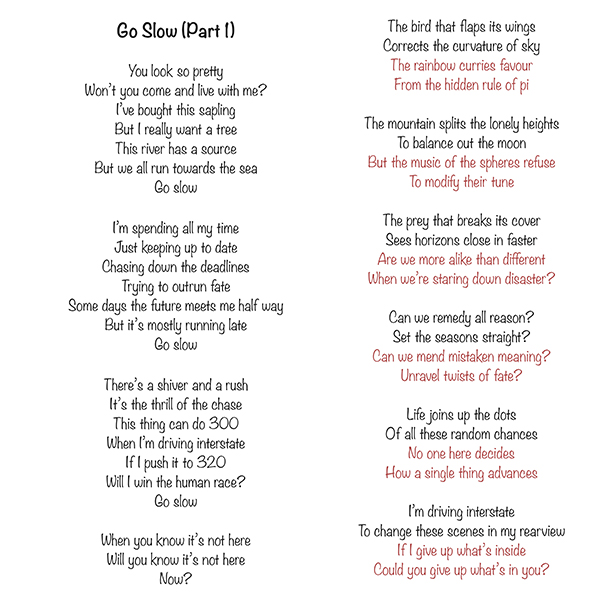
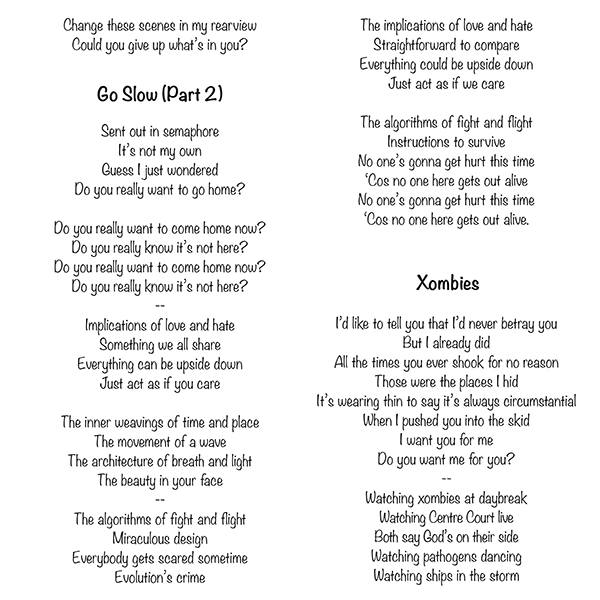
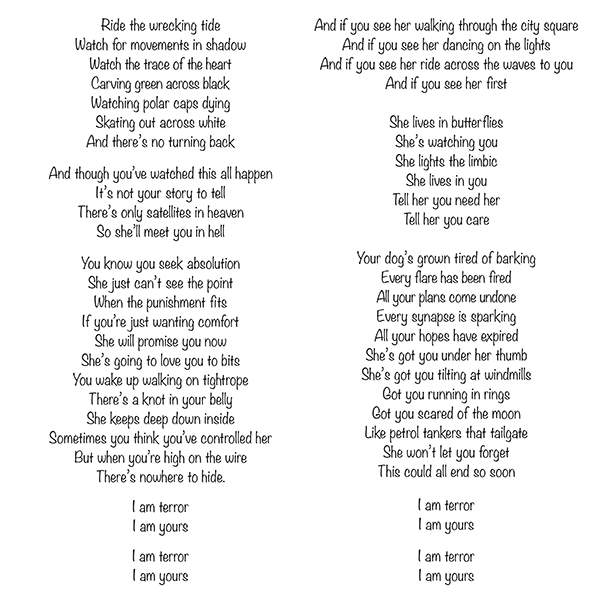
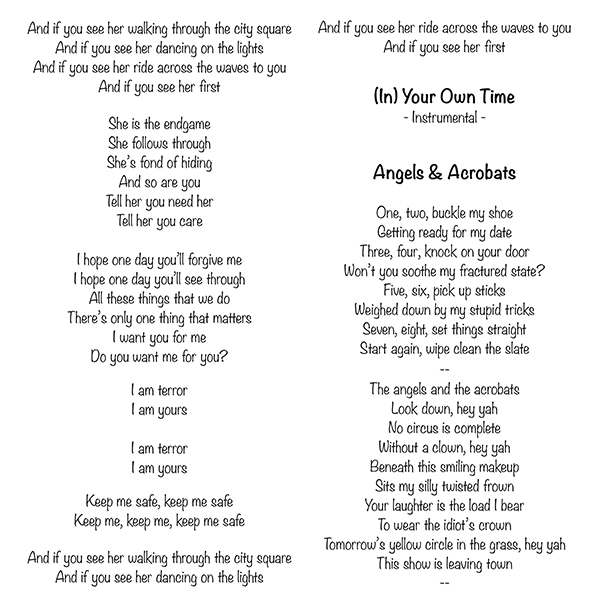
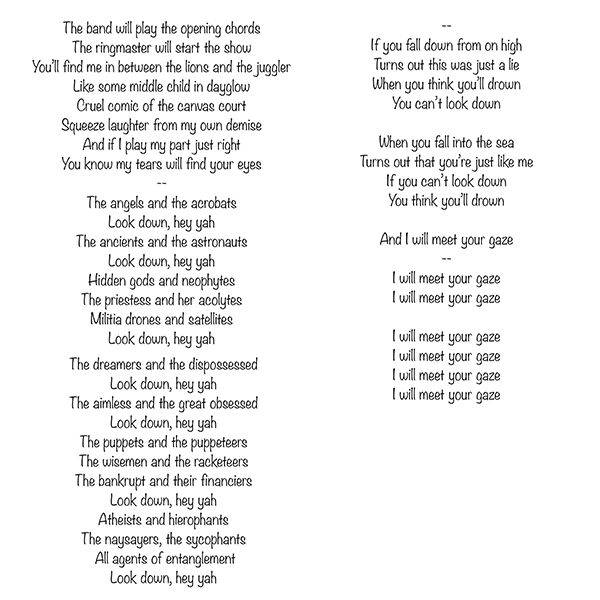

 With their second album ‘The Unlikely Event’, SJS continue to experiment with the fundamentals of sound construction, forging a fresh take on what passes for contemporary progressive rock. Soundscapes are massaged into glorious ethereal splendour and then, just as easily, they get pulled apart, deconstructed with glitchy unpredictability. The undercurrent throughout, holding all the elements together, is attention to melody and, more specifically, melody delivered through fragility. Stawman is a unique musical voice both literally and by means of his diffuse influences. There is a delicate breakup to his emotional delivery, supported by incisive lyrics that are aching and immediate. When asked if SJS is a band or a solo project, writer and producer Stawman responded with another question, “can’t it be both?”.
With their second album ‘The Unlikely Event’, SJS continue to experiment with the fundamentals of sound construction, forging a fresh take on what passes for contemporary progressive rock. Soundscapes are massaged into glorious ethereal splendour and then, just as easily, they get pulled apart, deconstructed with glitchy unpredictability. The undercurrent throughout, holding all the elements together, is attention to melody and, more specifically, melody delivered through fragility. Stawman is a unique musical voice both literally and by means of his diffuse influences. There is a delicate breakup to his emotional delivery, supported by incisive lyrics that are aching and immediate. When asked if SJS is a band or a solo project, writer and producer Stawman responded with another question, “can’t it be both?”.
“Sure, SJS are my initials, but look at the other key players in the SJS project: Doug Skene, Graeme James and Chris Soulos. That’s Skene, James and Soulos. That’s SJS!”
Chris Soulos, a producer in his own right, is a thoroughbred touring and session bass player, having worked alongside the likes of Jermaine Jackson and Chad Wackerman. James, a masterful drummer, also plays with the band Tramtracks and was called in to do a stint as drum tech for the mighty Alan White the last time Yes toured Australia. Douglas Skene is the creative maestro behind prog-metal outfit Hemina as well as being a member of the band Anubis. In combination with Stawman, these three form the musical engine house of SJS. Franky Valentyn and Peter Clark make guest appearances on the album.
With this stunning follow up to their impressive debut album ‘The World Without’, the genre-blending neo progsters from Australia strike again!
Read an unedited transcript of Stawman's
recent interview with Stanley Sumar-Watt
An Interview with Stuart Stawman
By
Stanley Sumar-Watt
Little Hartley, NSW, October 31st 2021
Could I start off by clarifying whether SJS is a band or a solo project?
You know, I've asked myself the same question and arrived at another question; can't it be both? Sure, SJS are my initials, but look at the other key players in the project: Doug Skene, Graeme James and Chris Soulos. That's Skene, James and Soulos. That's SJS!
Do you play as a band?
Do we play as a band in the 21st Century sense? Yes. We play together through the process of file-sharing over the internet. That way of working was getting more and more commonplace before the pandemic but Covid has really locked it in as the new norm. Now, if you asked me the question, 'have we all been in the same room at the same time?' We haven't actually pulled that off yet! The guys have all been at my studio, but not at the same time. So Graeme and Chris have met previously, like 20-30 years ago! Practically in a past life, but they haven't seen each other again since back then, even though they now find themselves playing together on the SJS albums. It's a long story that I won't unpack now, but it's a neat outcome. Some kind of strange synchronicity. Graeme and Doug met two or three years back when we were all at a Steve Hackett concert. So, have we all played together in the one room? Have we even met in one room? No. But, to your original question, we definitely play as a band, yes.
The new album is called 'The Unlikely Event', can you tell us about the name?
'In the unlikely event of an emergency'. You know, the thing on the plane about the oxygen masks dropping down and a friendly voice telling you how to brace for impact? It's the thing that everyone ignores right before they hand out the peanuts and you settle down to watch TV. Well, we're living in an emergency, and I think we're still eating peanuts and watching TV. Here in the first world at least.
Irony?
Well, if you mean 'is this emergency really unlikely?' then, yes, of course. It is not unlikely at all. But it remains profoundly unfortunate, as Al Gore put it. It's like there is now a collective 'bracing for impact' that has come to infuse everyday life.
At risk of passing the peanuts or switching channels, what can you tell us about the new album?
In terms of musical evolution, I think this album is definitely a different animal to the last one. I guess others will have to be the judge, but I tend to think this album is easier to drop into from the get-go. There's more of an overall flow to it, so I think it's easier to let the music carry you along. The last album ['The World Without'] went through quite a lot of different spaces, different landscapes of sound and music, and it required quite a few brain resets each time it changed location. I mean, no more than fans of progressive rock are perfectly used to, and this new album still has its share of twists and turns but I just think overall there's more of a flow.
Was that the plan?
No, not at all. It wasn't intentional, it just happened that way. The sea was a bit calmer for this voyage. Less choppy,
Is that a reflection of what's been happening for you?
[Pause] . . . OK, you got me, that's a good call. I mean, it seems like an odd thing to say, but despite everything that's been going on in the world over the last few years, my own little corner of the universe has been more settled. I've been trying to live more by the sentiment of the album's second song, 'Go Slow'. That song is actually about quite a few different things but one of its . . . it acts as a kind of musical fridge-magnet for me, reminding me to slow down. I think Graeme uses it in the same way.
So, with its imminent release, this track could start showing up on a few more fridges!
Slow down Stan! I'm not sure I'm ready to run with the idea of 'Go Slow' being some kind of scaled-up sonic fridge-magnet! It's tricky, isn't it? On the one hand, there are some things that need to happen very, very quickly at the moment, it's back to those oxygen masks dropping from the panels above our heads, but many of us, including the planet, would also be better served if everything moved a little more slowly. I don't really know how we're going to resolve that.
So, to summarise, despite the emergency implicit in the album's name, this is an album with more flow and a song advocating for a more, what shall we say, relaxed pace?
[Laughs] Very good, more irony by the minute! Or more juxtaposition at least, that's always a good word to have knocking around, isn't it? You're supposed to have a healthy dose of juxtaposition in art. So, what are we saying; progress is destruction? Speed up so you can slow down?
Well, there's certainly a healthy dose of juxtaposition across the whole album. Like the end of 'Go Slow', where the backing vocals are singing 'You look so pretty, won't you come and marry me?' while the main vocal sings 'no one here gets out alive'.
Exactly. You've listened closely, thank you. Graeme picked up on precisely that point just a few days back. But before we go on, can we just walk this interview back a few steps because if there is any danger now of pitching this album as some kind of chilled exercise in AOR or Yacht Rock we should nip that in the bud straight away! It doesn't flow like it's in any danger of breaking into the easy listening charts any day soon. It is still firmly ensconced in the land of progressive rock.
Shifting soundscapes, less common time signatures and longer tracks?
Shifting soundscapes, yes, tick. Sure, I guess the inclusion of less common time signatures and longer tracks is two more ticks, we've got all of that going on. But different time signatures and longer tracks . . . well, it's a difficult . . . I was going to say that they don't really count as the defining credentials of progressive rock, but then who the hell else is using them? Jazz and orchestral, I suppose. And this album is not jazz, it's not orchestral, and it's definitely not AOR, so it must be prog!
What would be a definition of progressive rock for you?
Well, that's the question. I don't think anyone has ever really succeeded in coming up with a definitive answer. It's a bit like postmodernism, isn't it? The difficulty in defining what postmodernism is turns out to be an example, an expression, of the thing itself. It's the same with progressive rock. The Tao that can be spoken is not the Tao. I guess what postmodernism and prog have in common is that they both work hard to look at the world through different eyes, both in their own spheres of course, both in their own ways.
How does the music of SJS look at the world through different eyes?
Well, we've covered the different time signatures and song lengths, and the shifting soundscapes. But the experimentation of prog rock goes beyond that: exploring different instrumentation and different approaches to sound. And then there's exploring different approaches to lyrics and subject matter.
Can you give examples of different approaches to lyrics?
'Squonk', by Genesis. Have you read those lyrics!? What's going on there? Or Animals by Pink Floyd. There are not many love songs on that album. And, in all seriousness, I think 'I am The Walrus' has a lot to answer for.
The Beatles as originators of progressive music; I think that has been suggested before.
Absolutely. One hundred per cent.
But what of the different approaches to lyrics in your new album.
OK, you've done this interviewing thing before; you're keeping me on topic! [Pause] Well . . . so, here's an example, maybe it's a cheeky one because I have to say at the outset that I seriously love the band Anathema. The world of progressive rock is a smaller place since those guys decided to shut up shop. I was listening to one of their songs a couple of years back, I forget which one, and Vincent is singing brother Danny's lyrics about never betraying someone. It's a kind of love song basically. I think it might be 'Untouchable' on 'Weather Systems'. Anyway, it's a fantastic track but, to borrow a word from Doug Skene, there's a bit of 'cheddar' going on with that lyric. 'My love will never die, and I will never betray you'. It's sailing just a bit too close to love/dove/June/moon territory for my comfort. Anyway, I was listening to that track and the first line of 'Xombies' [Track 4 on 'The Unlikely Event'] came into my head; "I'd like to tell you that I'd never betray you, but I already did". Now that isn't earth shattering, but it set me up with a different entry point for a song. And as I followed the thought it turned into the complete opposite of being a song about love, it became a song about terror. Our relationship, or I probably should say, your relationship with terror. And then, having said all of that, it actually turns out to be a kind of love song after all, because it's all about the ways your terror loves you, how it courts you, how it wines you and dines you.
There's your juxtaposition again.
Juxtaposition is about the contrasts, I think Graeme captured what I'm going after better by saying it's about 'being in-between things'. It's not the contrasts and opposites so much as the experience of being in-between the contrasts and opposites. Living in-between. Which takes us right back to postmodernism and the idea of multiple truths, that some things can even be true and false. It's about the comfort and discomfort of living in-between different possibilities instead of short-circuiting to a single narrative because it appears to make things simpler. Single narratives are divisive, we're seeing that more and more now.
John Keats and his negative capability.
Spot on. It's not a new idea, is it? But nor has it ever held great popularity.
The track 'Xombies' you were talking about, your simmering ode to terror; it's actually a very laid back song.
That's right, probably the most laid-back track on the album, with the drums keeping that whole front section super-chilled by using brushes on the kit. But that said - spoiler alert - there are a couple of places where Graeme completely unleashes on the kit.
And speaking of unleashing, there's a couple of blistering guitar solos from Douglas Skene on this album.
That's right, the first track and the last. Book ends. The album is not about show-boating solos, but when the time is right, Doug delivers in spades. And then you've got Chris Soulos doing a beautiful job of holding down the bass end right across the album. Honestly, life got better when I met Chris, Graeme and Doug. They still haven't met each other all at once, but I have! I'm a lucky man. And at the very last minute, Franky Valentyn came on board to do some keyboards. I had singularly failed to nail a couple of keyboard parts on 'Xombies' and they'd bugged the hell out of me for a couple of years. I did the file-share with Franky and he knocked it out of the park straight away. Job done.
And that is the making of 'The Unlikely Event'
In a nutshell, yes.
Well, it's a stunning next step for the SJS canon, I personally think you should be very proud.
Thanks, Stan.
Thank you for your time today.
You're always welcome.
© 2021 Stanley Sumar-Watt. All Rights Reserved.